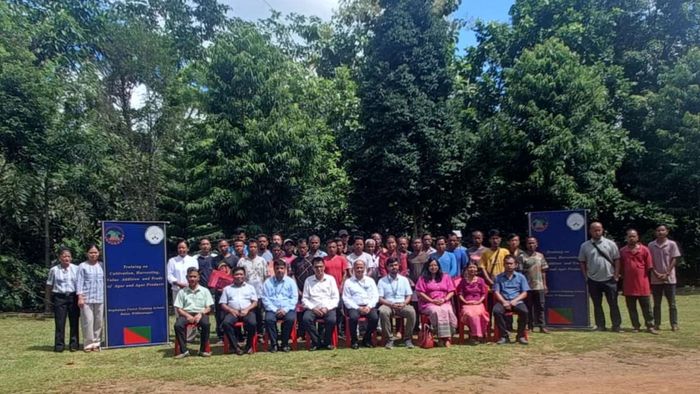Meghalaya launches training programme to boost agar cultivation, value addition
The Meghalaya Forest Training School in Baiza has initiated a comprehensive programme to train local farmers in agar cultivation, harvesting, and value addition. Supported by the Meghalaya Basin Development Authority, the initiative aims to enhance the economic potential of agar farming in the state.

- Sep 02, 2024,
- Updated Sep 02, 2024, 2:15 PM IST
The Meghalaya Forest Training School in Baiza has kicked off a comprehensive training programme aimed at empowering local farmers in the cultivation, harvesting, and value addition of agar, a highly prized aromatic resin.
The training, organised by the Research and Training Wing in the Forest and Environment Department and supported by the Meghalaya Basin Development Authority (MBDA), will reach out to 1,200 farmers from 20 blocks across the state.
Agar, derived from the tropical evergreen agar tree, is renowned for its distinctive fragrance and medicinal properties. It has been used for over 2,000 years in incense, perfumes, cosmetics, and traditional medicines. The resin-infused wood can retain its aroma for extended periods, making it a valuable global commodity.
Agar cultivation, processing, and trade can play a pivotal role in realising Meghalaya's aspiration to become a $10 billion economy by 2028.
The training programme will cover various aspects of agar cultivation, including nursery management, plantation establishment, and post-harvest processing. Participants will also learn techniques for extracting and processing agar chips, a labour-intensive but highly lucrative activity. Live demonstrations and field visits to agar plantations are part of the curriculum.
HC Chaudhary, the Principal Chief Conservator of Forests, Working Plan, Research & Training, and District Council Affairs, highlighted the immense economic potential of the agar sector for Meghalaya.
Meghalaya's eco-climatic conditions are well-suited for agar tree growth, and the state is home to numerous naturally occurring agar forests. The training aims to equip farmers with the knowledge and skills to establish and manage agar plantations, thereby generating sustainable income and employment opportunities in rural areas.
The training programme will run until October 17, with 50 farmers from each of the 20 identified blocks attending the two-day sessions. The initiative is expected to have a lasting impact on the livelihoods of Meghalaya's farming communities and the state's broader economic development.